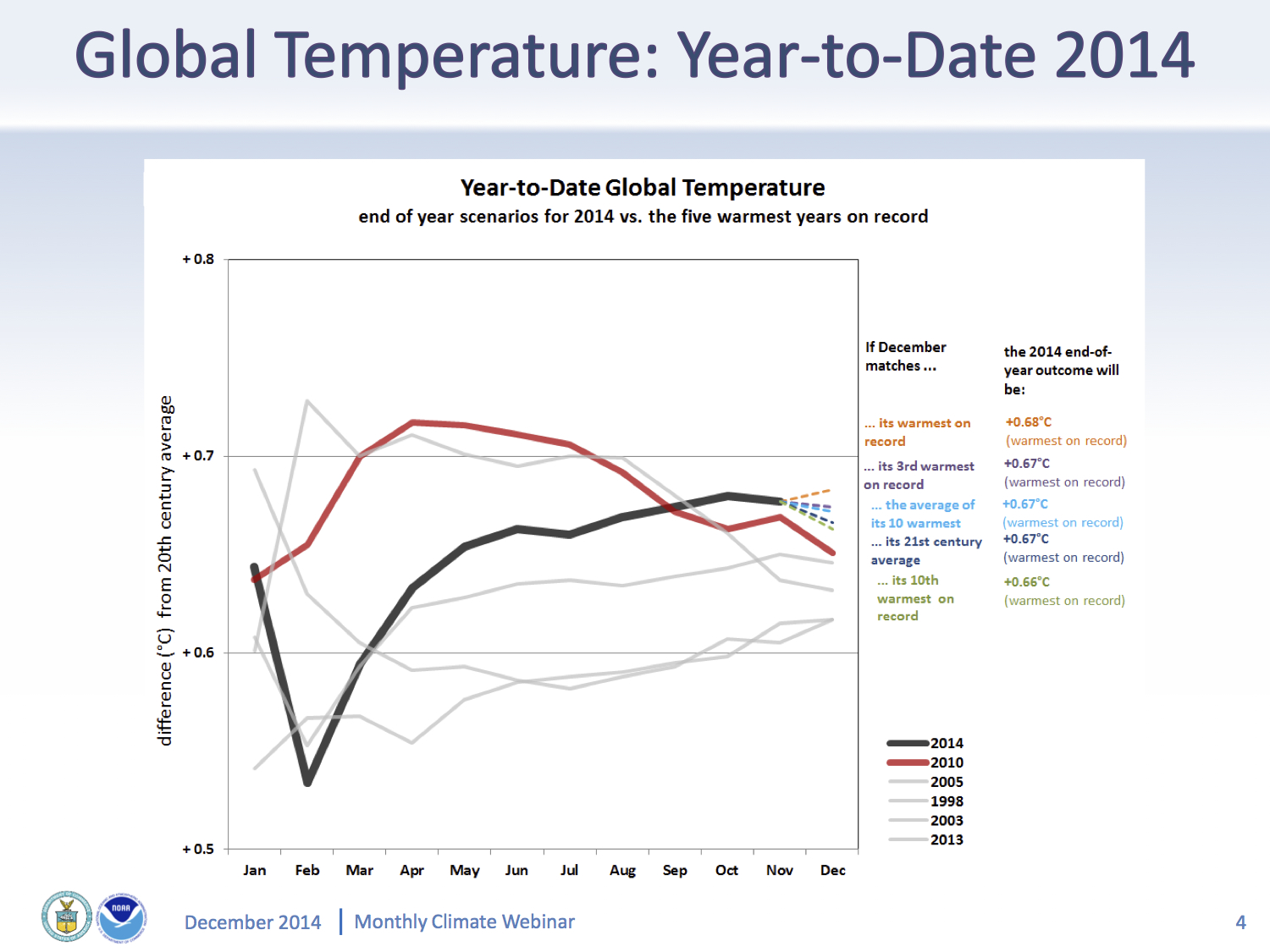2014 Hottest Year Ever? Scientists Unveil Data Today

Even though winter is pummeling the United States with full force, expect today's (Jan. 16) weather news to focus on record heat.
Climate scientists are scheduled to announce today that 2014's global temperatures shattered earlier records by a full degree, making 2014 the hottest year since 1880. The temperature data will be released by NASA and the National Oceanic and Atmospheric Administration (NOAA) at 10:30 a.m. EST (3:30 p.m. GMT). A news conference with NASA and NOAA scientists will be held at 11 a.m. EST. NASA will stream live audio and graphics from the briefing at http://www.nasa.gov/newsaudio.
At the end of November 2014, the planet's average temperature was on track to soar 1.22 degrees Fahrenheit (0.68 degrees Celsius) above the 20th century average, NOAA said during its December 2014 monthly climate update. The 20th century average is 57.1 degrees F (14.0 degrees C). [Hottest Year Ever: 5 Places Where 2014 Temps Really Cooked]
2014 has already been declared the warmest year on record by one of the planet's four leading weather-tracking organizations. The preliminary 2014 readings were 1.1 degree F (0.63 degrees C) hotter than its 20th century average, the Japan Meteorological Agency announced Jan. 6. That kicks 1998, the previous record holder, out of the top spot by just 0.1 degrees F (0.06 degrees C), the agency said in a statement. 1934 was the hottest year in the United States, closely followed by 1998.
All of the 10 hottest years on record have come since 1998. February 1985 was the last month in which global temperatures fell below the 20th century average.
The United Kingdom's Hadley Center also tracks global temperatures but has not released its final numbers. However, Britain's Met Office said that 2014 was unusually warm and wet in the United Kingdom, with the highest temperatures measured in central England since record keeping started in 1659. (NASA and NOAA are the other two temperature keepers.) Other regional standouts included Australia and its searing heat waves, Russia's early spring and Europe's broiling summer, plus record surface warmth in the tropical and eastern Pacific Ocean.
There was one notable cold spot last year: central and eastern North America, driven by the brutally cold winter of 2013-2014. States surrounding the Great Lakes were much colder than average, but in the West, California and Arizona saw record warmth that exacerbated ongoing droughts. Alaska and Nevada also had their warmest years on record, according to NOAA.
Get the world’s most fascinating discoveries delivered straight to your inbox.
Follow Becky Oskin @beckyoskin. Follow LiveScience @livescience, Facebook & Google+. Originally published on Live Science.



